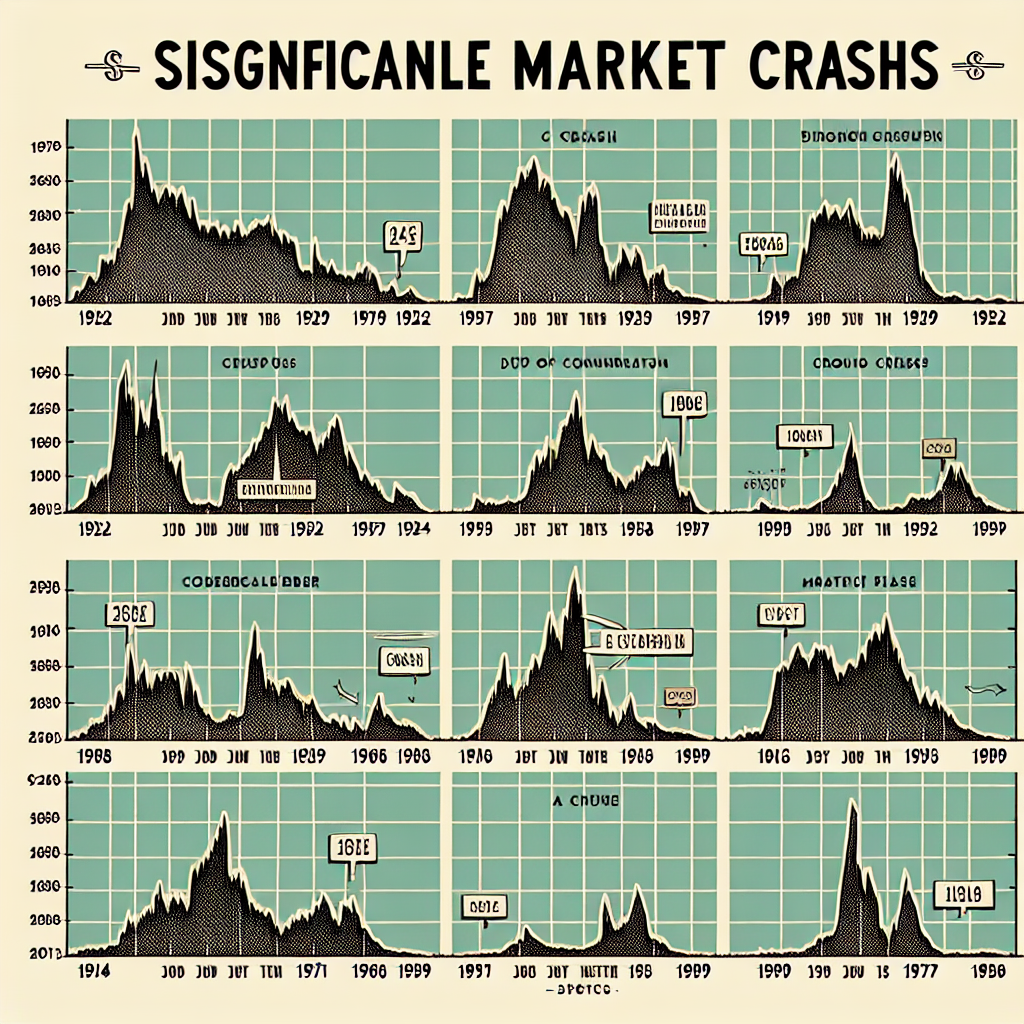“Historic Market Crashes: The Most Devastating Downturns Since 1929”
Historic Market Crashes: The Most Devastating Downturns Since 1929
Introduction to Market Crashes
Market crashes have been pivotal events in financial history, often leading to widespread economic turmoil. This summary explores the most significant market downturns since the infamous 1929 crash, highlighting their causes, impacts, and lessons learned.
The Great Depression (1929)
The stock market crash of 1929 marked the beginning of the Great Depression, a decade-long economic downturn that affected economies worldwide.
- Triggered by speculative investments and over-leveraging.
- Resulted in a 25% unemployment rate in the United States.
- Led to significant reforms in financial regulations.
Black Monday (1987)
On October 19, 1987, global stock markets experienced a sudden and severe crash, known as Black Monday.
- The Dow Jones Industrial Average fell by 22.6% in a single day.
- Caused by computerized trading and market psychology.
- Prompted improvements in market mechanisms and circuit breakers.
The Dot-Com Bubble (2000)
The early 2000s saw the burst of the dot-com bubble, characterized by the collapse of internet-based companies.
- Fueled by excessive speculation in technology stocks.
- Resulted in a loss of $5 trillion in market value.
- Highlighted the risks of speculative bubbles and overvaluation.
The Global Financial Crisis (2008)
The 2008 financial crisis was one of the most severe economic downturns since the Great Depression, triggered by the collapse of the housing market.
- Caused by high-risk mortgage lending and financial derivatives.
- Led to the failure of major financial institutions.
- Resulted in global economic recession and regulatory reforms.
COVID-19 Pandemic Crash (2020)
The COVID-19 pandemic led to a rapid market crash in early 2020, as global economies shut down to curb the virus’s spread.
- Characterized by unprecedented volatility and uncertainty.
- Prompted massive fiscal and monetary interventions.
- Accelerated shifts towards digital and remote technologies.
Conclusion
Each of these historic market crashes has left a lasting impact on the global economy, shaping financial regulations and investor behavior. Understanding these events provides valuable insights into the vulnerabilities of financial markets and the importance of prudent risk management.






































